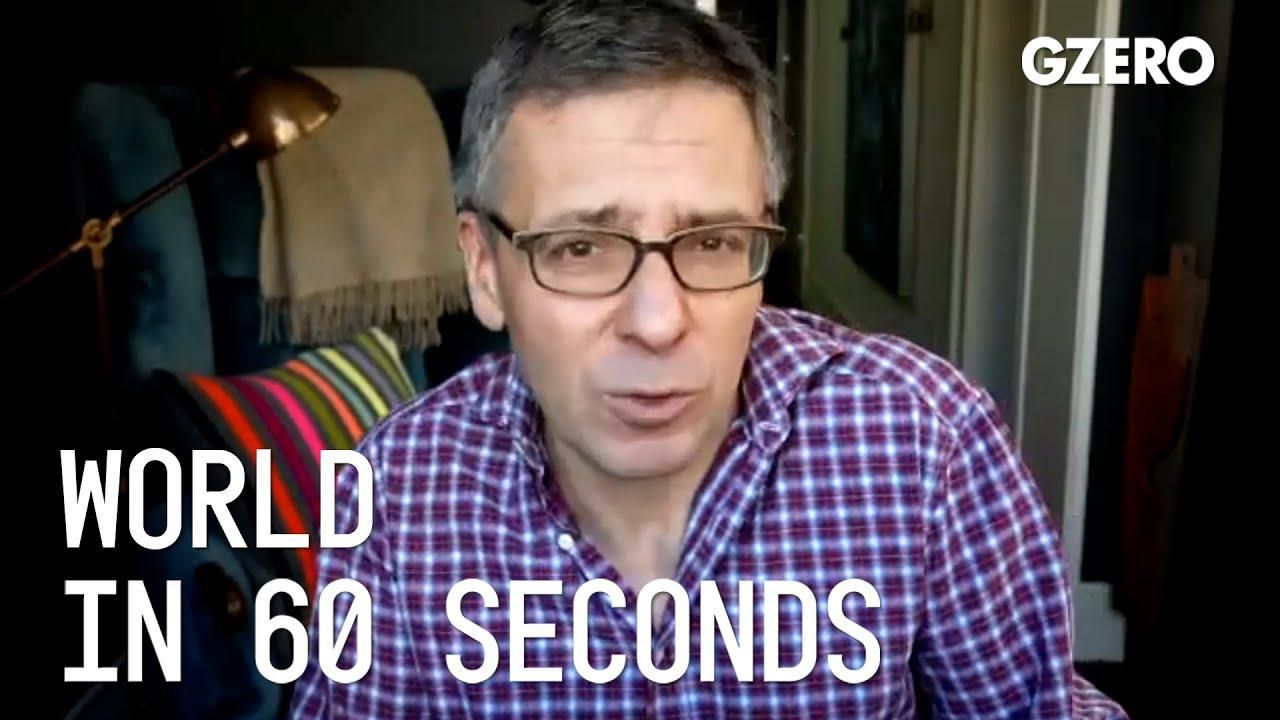Who poisoned Russian oligarch Roman Abramovich? Does Russia's invasion of Ukraine mark the end of globalization? Will Shanghai's lockdown begin to shift China away from its zero-COVID policy? Ian Bremmer shares his insights on global politics this week on World In :60.
First, who poisoned Russian oligarch Roman Abramovich?
Yeah, it's quite a story involved in the Russia-Ukrainian negotiations, and apparently claimed that he was poisoned. And it's interesting, he is, of course, a very well-known Russian oligarch. He's made his billions of dollars, purely because of the support and alignment with President Putin. And he has been fairly public in his concern with opposition to the war. Indeed, one of the reasons why some of the sanctions have been more limited against him than they would've been is because Zelensky, the Ukrainian President, reached out to the Biden administration and said, "This guy's actually being useful to us, and so it would be, you don't want to hit him too hard." And clearly, the Kremlin is angry about that. And so, I have no intelligence at all about who would've been responsible for his poisoning, but if it happened, the list from the Kremlin would be as long as my arm.
Does Russia's invasion of Ukraine mark the end of globalization?
No, but it marks the end of globalization for Russia. And even if we're able to get to a ceasefire, even if we can get a frozen conflict in Ukraine, and increasingly that does look likely to me, in part because the Russian military performance on the ground in Ukraine has been so abysmal and there isn't the general mobilization and negotiations are increasingly reflecting a climbdown from the Kremlin from the military aims that they originally had when they thought they were going to get to Kyiv and take over in a relatively short order. But that's very different from the idea that sanctions will be removed. And even if you unfroze the Kremlin's assets, which I think you could do if you had a negotiated settlement and all the Russian troops verifiably moved out of Ukrainian territory, or very, very far from that, but you're not going to get the Europeans willing to actually invest in Russia going forward. You're not going to see the Americans or the Europeans say, "No, okay, we're comfortable now with Nord Stream 2 or with getting oil and coal and gas from Russia."
So I believe that Russia's relationship with the West, with the advanced industrial economies, is broken irrevocably, and that's a really big deal. The broader question is to what extent that also starts to disalign China more from the advanced industrial economies as well. Now if that were to happen, you'd say that's a tipping point against globalization. We are not there right now. I hope that doesn't happen because the interdependence is enormously important, not just for the global economy, but also for the avoidance of war. But that's a really big question that we're going to be looking at very carefully in the coming weeks.
So finally, will Shanghai's lockdown begin to shift China away from its zero-COVID policy?
Maybe at the margins, but I don't see it. Keep in mind that Xi Jinping really believes that the Americans are massively irresponsible for allowing a million people to die during COVID, and the fact that the Chinese economy is taking a huge hit and a lot of Chinese citizens are being massively inconvenienced by Shanghai being locked down, and it's the biggest city in China. Sothis is a huge deal. And this is after the Port of Shenzhen and the city was closed and Jilin and other places across China.
But Xi Jinping's position is, this zero-COVID policy, it's my policy. I implemented it, and I'm stopping the Chinese from dying. And what we are seeing is that, once they implement a complete lockdown, you very quickly go from symptomatic cases to asymptomatic cases because they're getting much more clarity and transparency in exactly where the COVID has spread, and then they're shutting it down. And the impact on that is, of course, I mean limitations on individual rights and liberties, and it's also a huge economic hit in the country. And it wouldn't surprise me, we're not going to see 5.5% growth, nothing close to that in China this year. But zero-COVID is going to stick, and that's going to be a big problem for the Chinese continually until they get mRNA vaccines and therapeutics that work at scale. They're not close to that right now.
- The Graphic Truth: What does Roman Abramovich own? - GZERO ... ›
- The US is at war with Russia: 4 scenarios from here - GZERO Media ›
- The Graphic Truth: European reliance on Russian gas - GZERO Media ›
- Will COVID-19 kill globalization? - GZERO Media ›
- Omicron & the undoing of China's COVID strategy - GZERO Media ›
- What We’re Watching: War spillovers, Biden bolstering allies, Modi’s free-trade rethink, Russian defection - GZERO Media ›
- The future of globalization - GZERO Media ›
More For You
On GZERO World, Ian Bremmer takes a hard look at the biggest global crises and conflicts that defined our world in 2025 with CNN’s Clarissa Ward and International Crisis Group’s Comfort Ero.
Most Popular
Think you know what's going on around the world? Here's your chance to prove it.
Less than one day after US President Donald Trump declared a military blockade of sanctioned oil tankers from Venezuela, he addressed the nation during a rare primetime speech – but didn’t talk about Venezuela.
